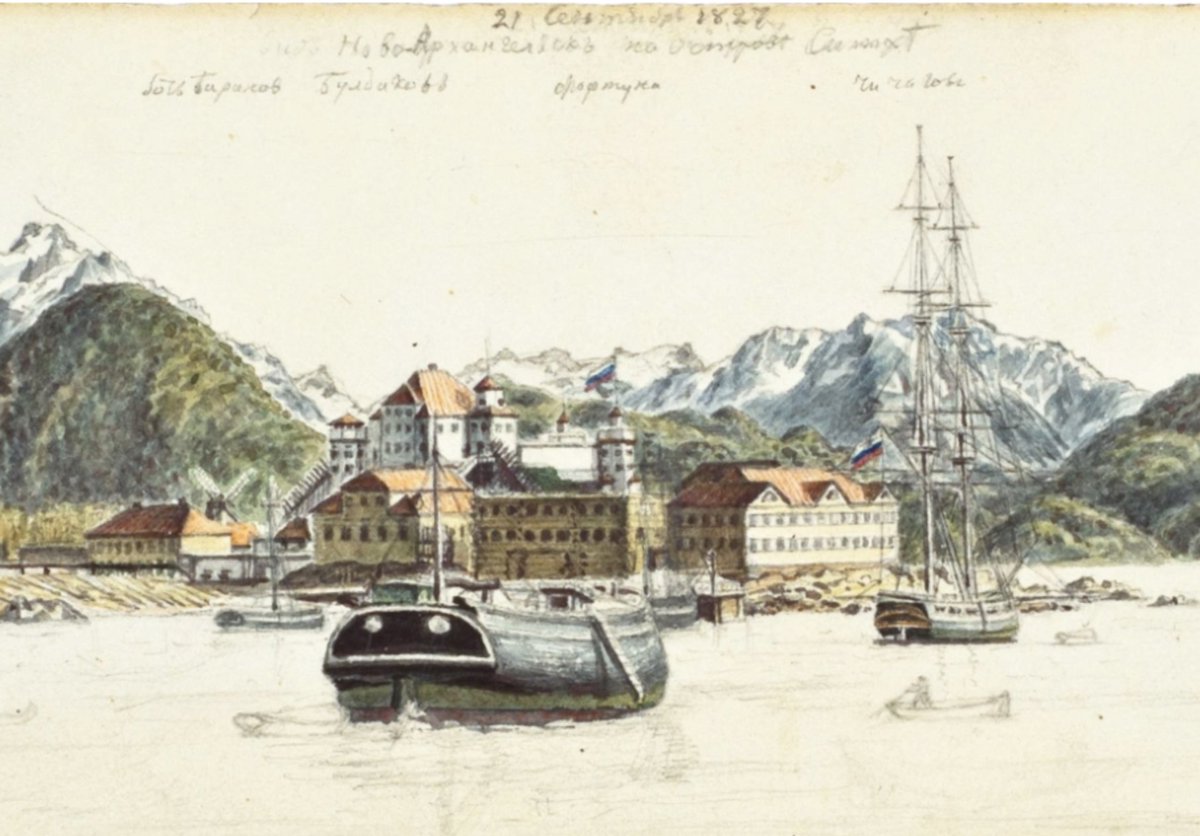One of the most ominous things in Putin’s 2021 article on the "historical unity of Russians and Ukrainians" was the description of Ukraine as “anti-Russia.” So far, nobody has traced the origins of this term. A 🧵 on the rhetoric that paved the way for the Russian invasion. 1/ 

In his invasion speech, Putin used the term once again, talking about the creation of “anti-Russia” “on our own historical territories.” Since then, the term has provided Russian public discourse with the new way of speaking about Ukraine, with obvious genocidal implications. 2/
The logic is clear: if a neighbouring state exists only to confront you and to deny you, if it's raison d'être is to be the exact opposite of what you are, it should not exist at all. According to it, the all-out war was inevitable as long as there was "anti-Russia" next door. 3/
The infamous op-ed article by Timofei Sergeitsev "What Russia must do with Ukraine" called for the extermination of part of the Ukrainian population and mass repressions against the rest because "Ukrainism is an artificial anti-Russian construction." 4/
The first mention of Ukraine as “anti-Russia” I was able to trace dates back to 2004. That year, the Moscow publishing house "Imperial Tradition" released a reprint of a 1912 book that significantly contributed to the rise of modern Russian revanchism. 5/
It was the well-known work “The Ukrainian Movement as a Contemporary Stage of South-Russian Separatism” by Sergei Shchegolev, one of the key persons responsible for oppressive measures against the Ukrainian national activism in the early 20th century. 6/
Shchegolev, who served as a Kiev censor, put a lot of effort to ban whatever publications in Ukrainian language he could. He was among those who made the Kiev censorship committee the main imperial body that systematically confronted the Ukrainian movement. 7/
He was also a member of the right-wing, anti-Semitic, and elitist Kiev Club of Russian Nationalists, a monarchist organization that saw its goal in struggling against cosmopolitanism, left-wing activism and, primarily, "Ukrainophilism." 8/
Drawing on an impressive command of Ukrainian sources he monitored as a censor, Shchegolev wrote his book to denounce "separatist" aspirations of Ukrainian cultural and public figures one the one hand, and to prevent the spread of Ukrainian national sentiments on the other. 9/
This book, which was widely welcomed by monarchist and ultra-conservative circles during the final years of the empire, was rediscovered again by revanchist circles in post-Soviet Russia, which dreamed of much more that the restoration of the empire they knew little about. 10/
Their dream was to put into practice the radical nationalist ideas that gained currency on the eve of the Great War, the ideas that the imperial government as such never consistently endorsed. This brings us to the publisher of Shchegolev's book. 11/
Mikhail Smolin, now the head of the Orthodox Center for Imperial Political Studies, the executive director of the "Imperial Renaissance" Foundation, and the deputy editor-in-chief of Tsargrad TV, has been active in publishing imperial nationalist "classics" since the 1990s. 12/ 

In 1998, he published the first such volume, "Ukrainian separatism in Russia," in the preface to which he urged to never recognize the existence of the Ukrainian statehood, nation, and language, because they all are made up by "Judeo-Masonic circles" and the West. 13/
He called on to solve the "Ukrainian question" once and for all, because if not, if the emergence of Ukraine would be an accomplished fact, Russia would face "an insurmountable problem" – the Ukrainian state as a member of NATO. 14/
In the preface to Shchegolev's book, in the section titled "Ukraine as anti-Russia," he quoted a work from his 1998 volume, referring to the racial inferiority of the Ukrainians, whose "racial mixing" with nomads placed them "substantially below the Russian race." 15/
"Today's chimerical entity 'Ukraine' is asserting itself precisely as anti-Russia," Smolin went on, referring to the famous book "Ukraine is not Russia" by Leonid Kuchma. This is the same reference that Putin made in his article, introducing the concept "anti-Russia." 16/
"We have to firmly assert that South Russian, Little Russian lands constitute an inseparable part of the Russian state, that there is nether 'Ukrainian' people nor 'Ukrainian' language, that they all are ideological phantoms," he wrote. 17/
Smolin's warning here is simple: if Ukraine exists, in whatever form, it will become a "springboard against Russia." This is why he called on "not to miss time" and act. His appeal was heard and put to action, even though much later than he would have expected. 18/
It shows us how marginal far-right rhetoric has infiltrated Russian official discourse on Ukraine and has driven the full-scale invasion with genocidal overtones and practices. It was just one of the myriad possible scenarios. Now it's the only one the world is dealing with. end/
@barabanch dates the term "anti-Russia" to 2010, but it's at least 6 years older.
bbc.com/russian/news-5…
bbc.com/russian/news-5…
• • •
Missing some Tweet in this thread? You can try to
force a refresh


















